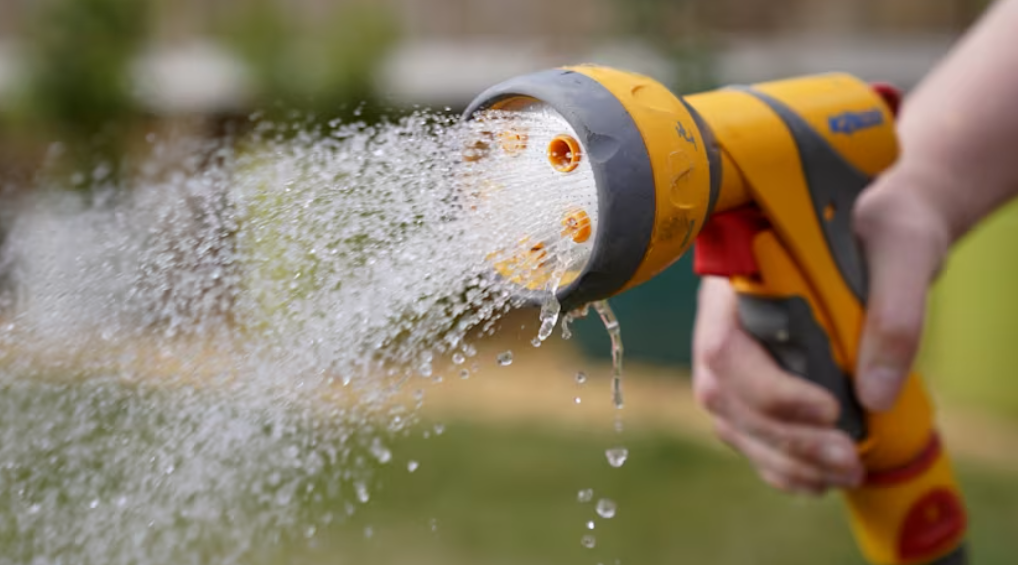A water company is bringing in a hosepipe and sprinkler ban after the driest spring for more than a century.
South East Water, which serves large areas of Sussex and Kent, including Peacehaven and communities just to the north of Brighton, announced the ban yesterday (Friday 11 July).
Southern Water, the water supplier for Brighton and Hove, has not yet introduced a “temporary use ban” but said that it was monitoring the situation daily.
Neighbouring Thames Water, which serves the northern part of Sussex, has warned that it may be forced to act soon.
South East Water said yesterday: “Record-breaking demand for drinking water has put significant pressure on drinking water supplies as the region grapples with a prolonged dry period and an approaching third heatwave of the summer.
“Met Office reports indicate this spring was the driest since 1893, with dry conditions expected to persist throughout the warmer months.
“At the start of the year, South East Water’s storage of raw (untreated) water was good.
“However, demand from May onwards has seen the company’s raw water levels fall faster and earlier than usual.
“They have now reached a point where they have exceeded the limits in the company’s drought plan and will soon start to also impact the environment.
“Demand for drinking water in Kent and Sussex has reached record levels since May – with warm and dry weather fuelling customer demand to a much higher level than the company is able to consistently provide.
“This situation has left South East Water with no choice but to restrict the use of hosepipes and sprinklers in both counties, affecting around 1.4 million customers.
“It continues to monitor the situation in its western region, where it serves customers in parts of Surrey, Hampshire and Berkshire.
“In recent weeks demand for water has increased to the highest levels we have ever seen for this time of year, reaching 680 million litres on Monday 30 June.
“This is 105 million litres of water a day more than the average for summer. On days like this, we’re pumping enough water to supply an additional four towns the size of Maidstone or Eastbourne.
“We’re aware there are a number of leaks on the network and we’re working hard to fix these. In the last year we’ve found and fixed over 18,000 leaks on our network and a further 6,000 customer side leaks. This is more than 12 per cent more than in the previous year.”
South East Water chief executive David Hinton said: “Providing the public water supply during this prolonged period of hot and dry weather continues to be challenging.
“Water supply resources have been significantly stretched but we are pleased that so far we have been able to largely meet customer demands through balancing our network and putting our newly arrived tanker fleet into operation straight away.
“However, we know that continued demand at this level presents a serious concern to ensure that we can protect the environment and keep everyone supplied.
“Despite asking for customers’ help to use water for essential uses only, regrettably we’ve now been left with no choice but to introduce this temporary use ban restriction to protect customers supplies and the environment across Kent and Sussex.
“We continue to monitor the long-term weather forecast and will review this decision on a regular basis.
“Restricting the use of hosepipes and sprinklers to make sure we have enough water for our customers’ essential use will ensure we can serve our vulnerable customers and to protect the local environment.
“The temporary restrictions will mean that customers will be prevented from using hosepipes for watering their gardens, washing cars, windows and patios or filling swimming and paddling pools.
“We are very aware that climate change and other factors are increasing the frequency of these events.
“Hosepipe restrictions are an integral part of our drought mitigation in the UK and are designed to protect supplies and the environment.
“I would like to thank everyone who has already taken steps to try to reduce their overall water use.
“But, despite this, demand still remains very high and the forecast suggests a dry summer is highly likely which is why we have taken this decision to bring in temporary use restrictions.”
